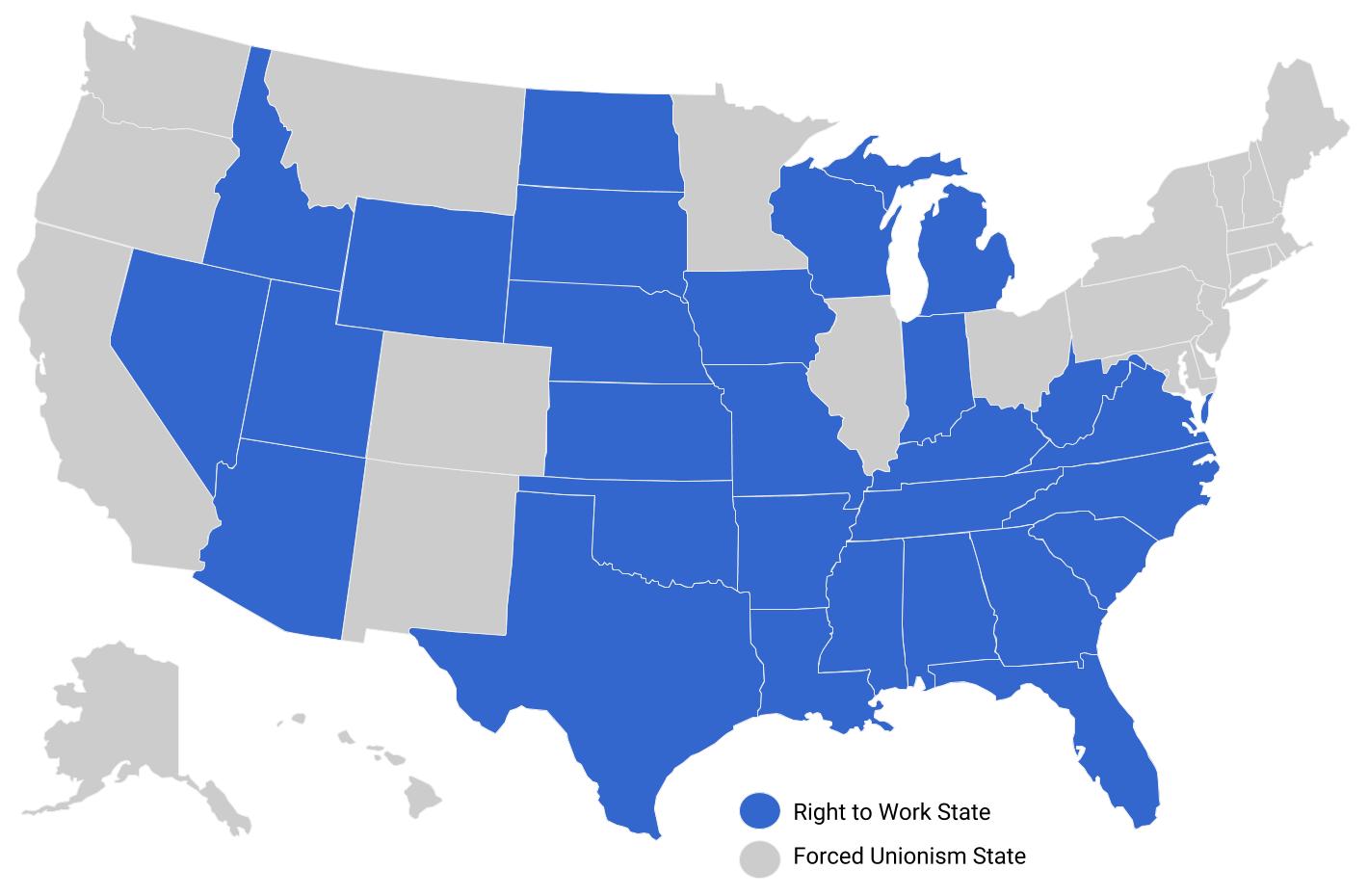If I’m in a right-to-work state, having a union won’t affect me if I choose not to join, right?
Twenty eight states now have right-to-work laws on the books, although Missouri hasn’t yet enforced the newly elected law because unions secured enough signatures to put a repeal of the law on the ballot in 2018.

Right to Work laws often come up during union organizing campaigns, and can be very confusing. When you live in a Right to Work state, it’s important you fully understand this law and what it means to you if the union is voted in here.
Union organizers often tell employees who live in a Right to Work state that if they vote the union in, they get all the great benefits, wages, and everything that comes with union representation, but don’t have to pay dues if they don’t want to. It’s a great sounding sales pitch, but of course, it just isn’t that simple.
Often employees think because they are in a Right to Work state, being represented by the union won’t affect them. They mistakenly believe they can just “opt out”, everything will stay the same and they will keep all that they have now. Again, it’s not that simple, and that just isn’t the case.
Right to Work means that if a union represents a group of employees, all the employees in the unit are represented by the union. The union is the spokesperson and representative for all the employees, and whatever contract may be negotiated applies to all the employees in the unit whether they joined the union or not. No one gets to “opt out” of being represented by the union or being subject to the terms of the contract.
The trade off for not paying dues is that you would not have the right to vote on union matters – voting to accept a contract, voting to go on strike, voting for officers of the union who will represent you, etc. Only union members can vote on those important matters.
You need to understand that unions are not “non-profit” organizations. They are a business and they require income to operate and stay in business. Although they still have a ‘duty of fair representation’ to all the employees they represent, they really don’t like it when employees don’t join and pay their fair share. Ultimately, per the union’s constitution, they have the right to determine which grievances have merit, and what grievances they’ll pursue. You need to ask yourself, if you have a work issue and are required to follow the grievance process outlined in the contract, how hard do you think the shop steward or business agent will work for those who aren’t paying up?
